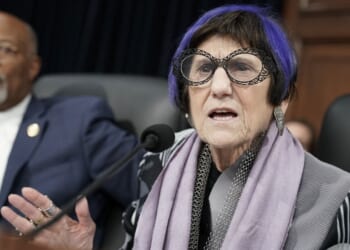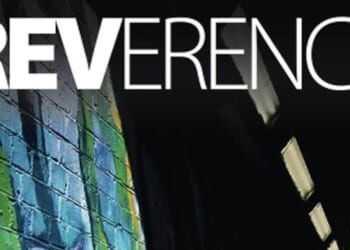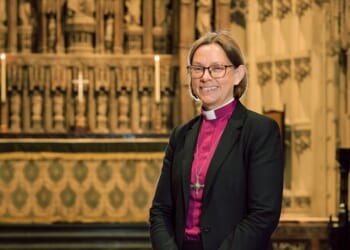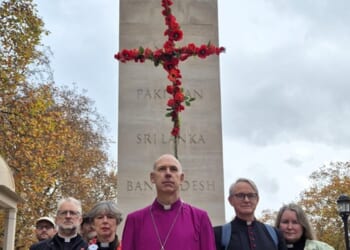BUCHAREST, Romania, (LifeSiteNews) — In a moving display calling international attention to the plight of persecuted Christians in Nigeria, Romanian national soccer team fans unfurled a massive banner reading “DEFEND NIGERIAN CHRISTIANS” during a World Cup qualifying match in Bucharest.
‘Defend Nigerian Christians’
Fans of the Romanian national football team unfurled a banner before their Worlld Cup Qualifier pic.twitter.com/asTnmvuV1l
— Catholic Arena (@CatholicArena) October 15, 2025
The public display of solidarity comes amid the ongoing, brutal — frequently murderous — attacks by Islamist terrorist groups against Christian communities in the African nation.
“For many Nigerian Christians, faith is now lived under constant threat. Villages gather to worship in burned-out sanctuaries, pastors preach despite the risk of abduction, and displaced families cling to Scripture in crowded camps,” noted a Catholic commentator on X.
“This is one of the most dangerous places in the world to follow Jesus – and yet it remains one of the least reported humanitarian crises,” said the Marine veteran, adding:
To my brethren in Nigeria, you aren’t forgotten.
Stay strong and keep the faith
God is with you.
ALL EYES ON NIGERIA🇻🇦 🇳🇬
For many Nigerian Christians, faith is now lived under constant threat. Villages gather to worship in burned-out sanctuaries, pastors preach despite the risk of abduction, and displaced families cling to Scripture in crowded camps.
This is one of the… pic.twitter.com/oc8Cof65UE
— ☩ 𝕁𝕄𝕋 ☩ (@SecretFire79) October 1, 2025
As noted by LifeSiteNews contributor Jonathan Van Maren, Christians in Nigeria had faced sporadic persecution since the 1950s, but since 2000 have seen wave after wave of violence that has essentially become a slow-motion genocide.
Persecution of Christians in Nigeria began to spike after 1999, when 12 northern states adopted Sharia law. The rise of the terrorist group Boko Haram in 2009 marked a dramatic escalation as well. Famously, the group kidnapped hundreds of schoolgirls in 2014; 87 of them are still listed as “missing.”
Recent attacks in the country have seen the abduction and even murder of Catholic priests and seminarians. In a July press release, the Diocese of Auchi in Edo State reported that several gunmen attacked the Immaculate Conception Minor Seminary, killing one security guard and kidnapping three seminarians.
Last week, Sen. Ted Cruz (R–Texas) warned those responsible for tens of thousands of Christian deaths in Nigeria that he will “hold them accountable,” prompting vociferous denials from the Nigerian government.
“Since 2009, over 50,000 Christians in Nigeria have been massacred, and over 18,000 churches and 2,000 Christian schools have been destroyed,” said Cruz on X. “It is the result of decisions made by specific people, in specific places, at specific times—and it says a great deal about who is lashing out now that a light is being shone on these issues.”
“The United States knows who those people are, and I intend to hold them accountable,” added Cruz.
Since 2009, over 50,000 Christians in Nigeria have been massacred, and over 18,000 churches and 2,000 Christian schools have been destroyed.
It is the result of decisions made by specific people, in specific places, at specific times—and it says a great deal about who is… pic.twitter.com/QXuuaaqOfE
— Senator Ted Cruz (@SenTedCruz) October 7, 2025
Findings published this summer by the United States Commission on International Religious Freedom (USCIRF) highlighted many of the state-sponsored attacks on Christians in the country.
The situation in Nigeria has deteriorated so much that the 2025 Global Christian Relief (GCR) Red List report named Nigeria as one of the most dangerous places for Christians in the entire world. The International Society for Civil Liberties and Rule of Law reported in spring 2023 that over 50,000 have been killed in the country for their Christian faith since 2009.
In its 2025 report, the USCIRF urged the U.S. government to designate Nigeria as a “country of particular concern.” It also disappointingly noted that “the Nigerian government remains slow or, at times, appears unwilling to respond to this violence, creating an environment of impunity for the attackers.”
















